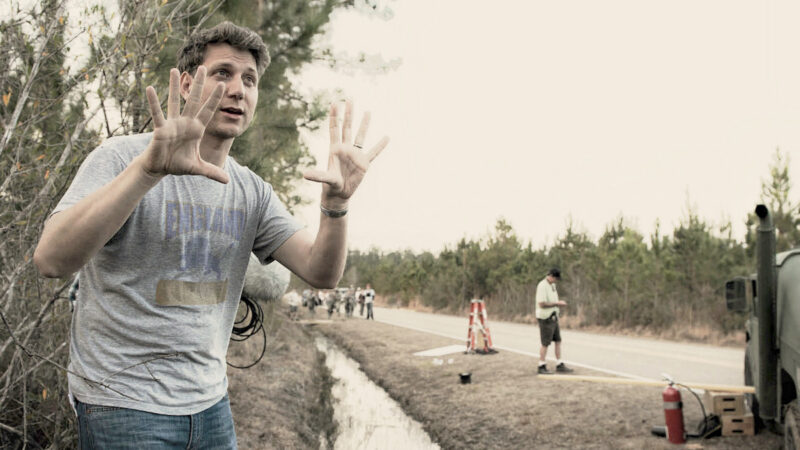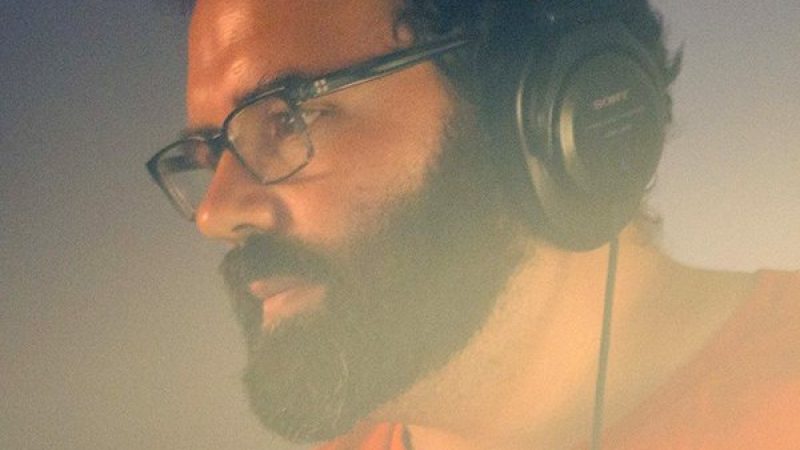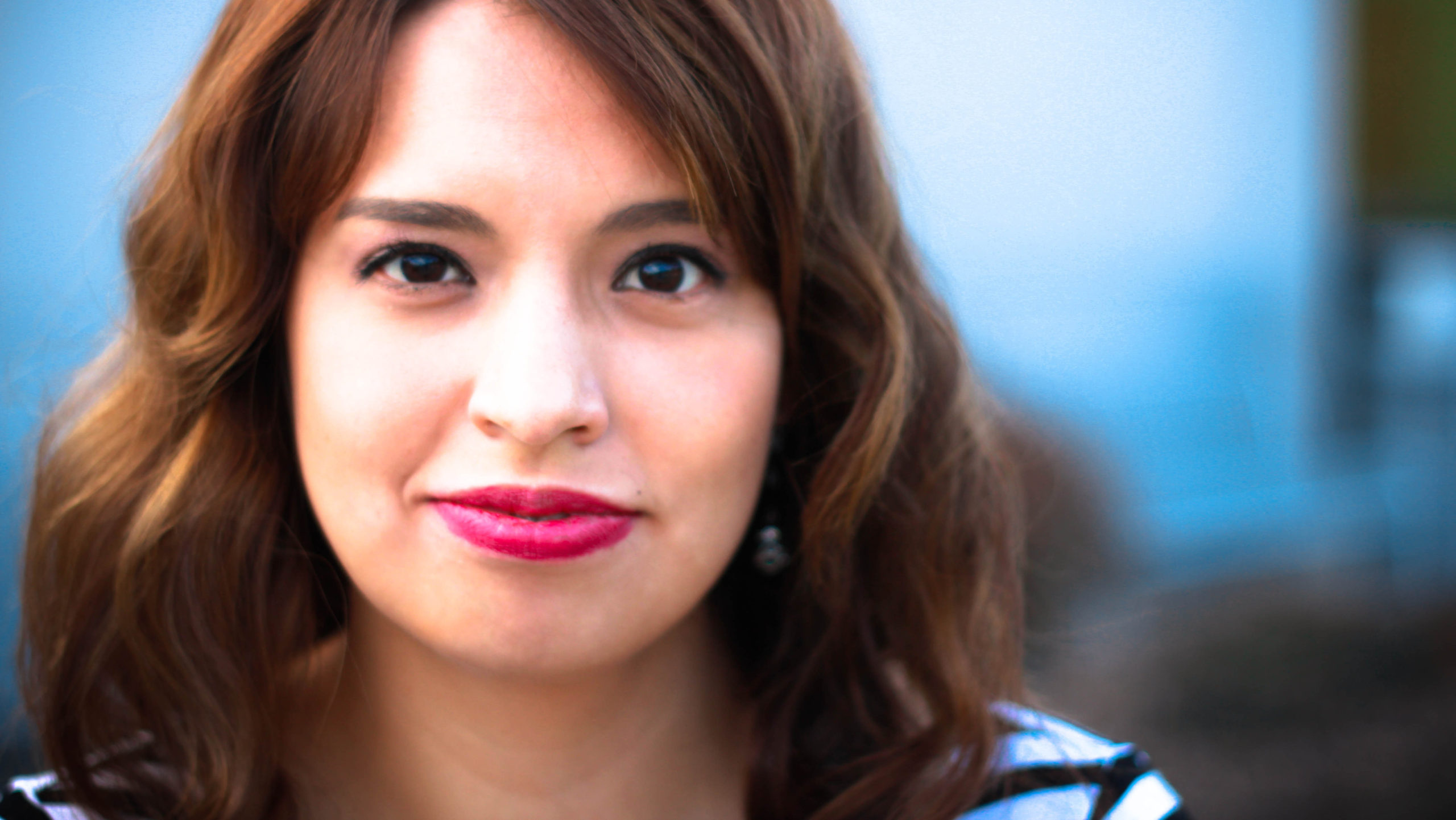
Melissa Marquez is a writer, director, and producer from Lima in Peru. Melissa moved to the US when she was age 5. She discovered her love of filmmaking using the family’s first film camera. Film helped Melissa adapt to the changes of being in a new country.
After graduating with a B.A. in Media Arts, Melissa Marquez wrote and directed the award-winning short Dream, starring So You Think You Can Dance? and High School Musical The Series talent Stephani Sosa. By August 2019, Melissa had written and directed Ballroom Dreams; a film inspired by her personal experiences. Ballroom Dreams is the story of a Latina college student who pursues Latin ballroom despite her protective mother’s wishes and status in this country.
Melissa Marquez likes to create stories from moments in her life and interactions that made lasting impressions on her. Something she hopes to share with the world. We all seek something or the truth beyond the same story. Melissa is about centering on a protagonist who is different from the pack but relatable when it comes to the human experience.
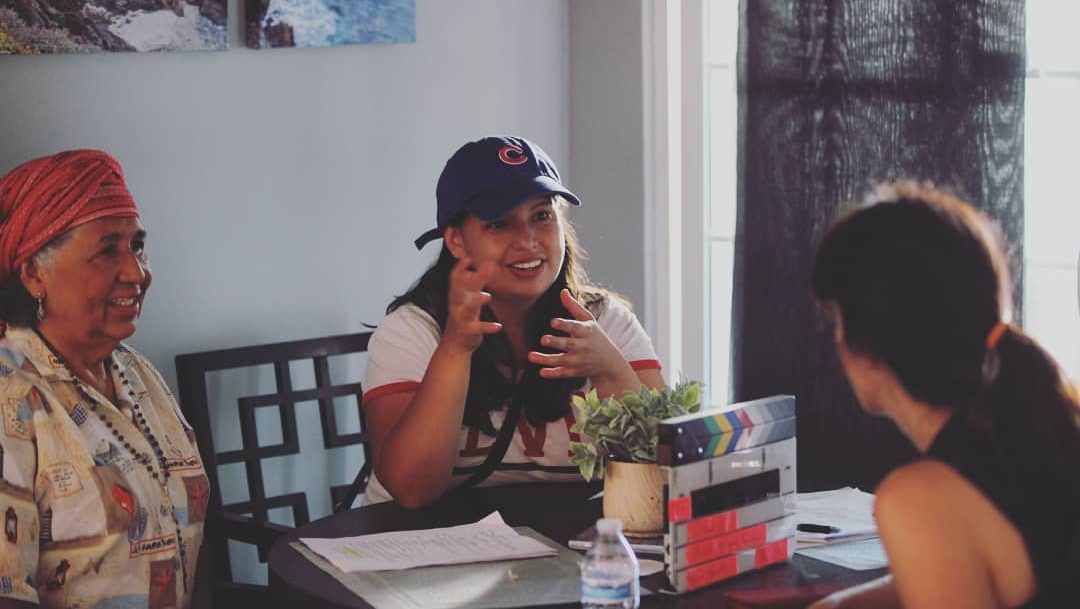
indieactivity: Why did you get into filmmaking and screenwriting?
Melissa Marquez (MM): I find joy and bliss in filmmaking and screenwriting. The feeling that I get when I can mold creation and make it better as time goes on, that type of thing really motivates and challenges me in my life. I really appreciate that type of passion in life; it keeps me going no matter what. Also knowing that I can inspire audiences with films that I make, even if I make a great impact with a few audience members, that is enough for me to continue to do what I do. I really want to make a difference in other people’s lives in a creative space.
How does an indie filmmaker distribute his/her film?
Melissa Marquez (MM): I feel like the best way to get your film out there, especially when you are starting out is to submit your work to as many film festivals or screenwriting contests as possible. Definitely put yourself out there so others can notice your work and want to show it in the film festival screenings and catch distributors’ attention that way so you can get distribution in some way. Keep creating and show your work in whatever way possible. Even if you only own an iPhone, create something, and submit. You never know! Sounds cliché, but I truly believe your voice can only get stronger the more you create.
At what period in the filmmaking process, does an indie filmmaker need to start planning for distribution?
MM: Anytime is a good time for planning. You can never do too much planning for a film in all aspects. Thinking about distribution early on will also mesh into thinking about marketing and what your target audience will be. This helps with what film festivals to submit to and what you hope to gain from making the film.
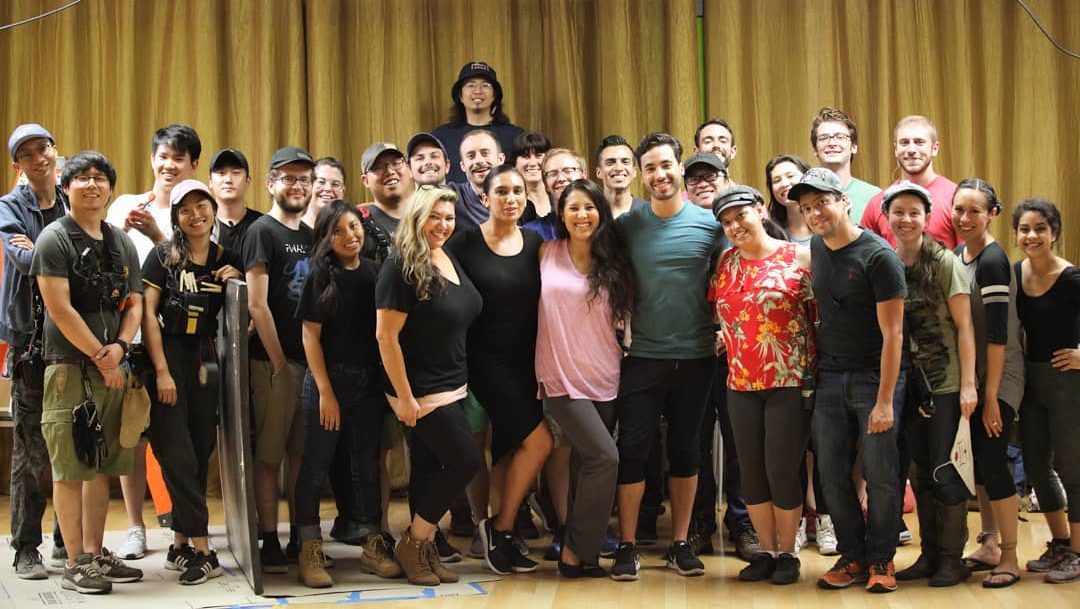
Indie filmmaking is a model based on zero-budgeting or small budgets. How do I get my film in theatres with such a budget?
MM: As mentioned, I would say the best way is to get your film to film festivals. If your film gets into a film festival then it will be screened in theatres, now this is different from the pandemic but festivals will usually screen them virtually during the interesting times we live in. There are film festivals that cost nothing to enter. I would say a good resource is the FilmFreeway website. There you can search for film festivals based on budget and other criteria.
How can filmmakers finance their projects?
MM: Go to crowdfunding websites like Seed & Spark. They have awesome resources for filmmakers who are looking for financing for their projects. That website in particular is tailored specifically for crowdfunding for filmmakers. You can also look into Kickstarter or Indiegogo if you prefer those sites. Also, if your film makes it into the top tier film fests and does well with distribution or does well as far as awards at the fest, you can use that to your benefit when it comes to funding. More people would be willing to jump on board for financing if they know you have an award-winning film under your belt. But again, not necessary. Crowdfunding is definitely such a great launchpad nowadays for all creators. If you have a compelling story to tell, you can make it happen!
What films have you made?
MM: I wrote and directed Dreams back in 2015 starring Stephani Sosa from High School Musical The Series on Disney Plus. You can watch the film below.
I also directed Ballroom Dreams in August 2019. I wrote that film 8 years ago as a feature and the short film version is currently in Post Production. We hope to take that one to the film festival circuit as well.
The Official Trailer for Dream by Melissa Marquez
Talk to us about your concept on collaboration?
MM: I feel like being able to collaborate is a great skill to have that not a lot of people can master because I feel like it takes listening and being able to take feedback from your team, which can be a very humbling experience. You need to be able to let go of being too much in control of the process. As a director, I feel like even in that role I need to be balanced and also take suggestions or insights from my team and learn to trust them. Obviously, if there is something that a director really wants to do and thinks it will be in the best interest of the film creatively then they should move forward with what they are thinking and that will help them project the core of the movie. It’s all about balance, I believe in making sure everyone is treated with respect on set even if there are differences, things can definitely be handled civilly.
How do you find the process of filmmaking as an indie filmmaker?
MM: Indie filmmaking is very liberating in the sense that you have more creative control as a director in that setting, but at the same time it is challenging due to budget. That is where I think it leads us creative to think even more outside of the box. We have to be creative with our choices when it comes to budget considerations that we’re making. It definitely makes us very resourceful and a valuable asset to any film set.
Describe your recent work, or film, take us through pre-production production and post production. Marketing too?
MM: With Ballroom Dreams, I wrote the feature version eight years ago. It’s a very cathartic experience to create a film that is based on your personal history. I had been dealing with depression for a while, still do. But more so during that point in my life, I felt I had enough when it came to hiding within a shadow of fear. At the time, I was worried about my status in the U.S., I was not a permanent resident back then. I came at such a young age and I truly struggled for a while with my identity as a Peruvian and trying to fit in with the American crowd at the same time. I think this is something anyone can relate to in the sense that we all have felt different at one time or another in our lives. I feel like getting involved in ballroom dance really inspired me to create the story of Ballroom Dreams, I believe it brings a good message into today’s world especially with the hard times of the pandemic that we are all facing.
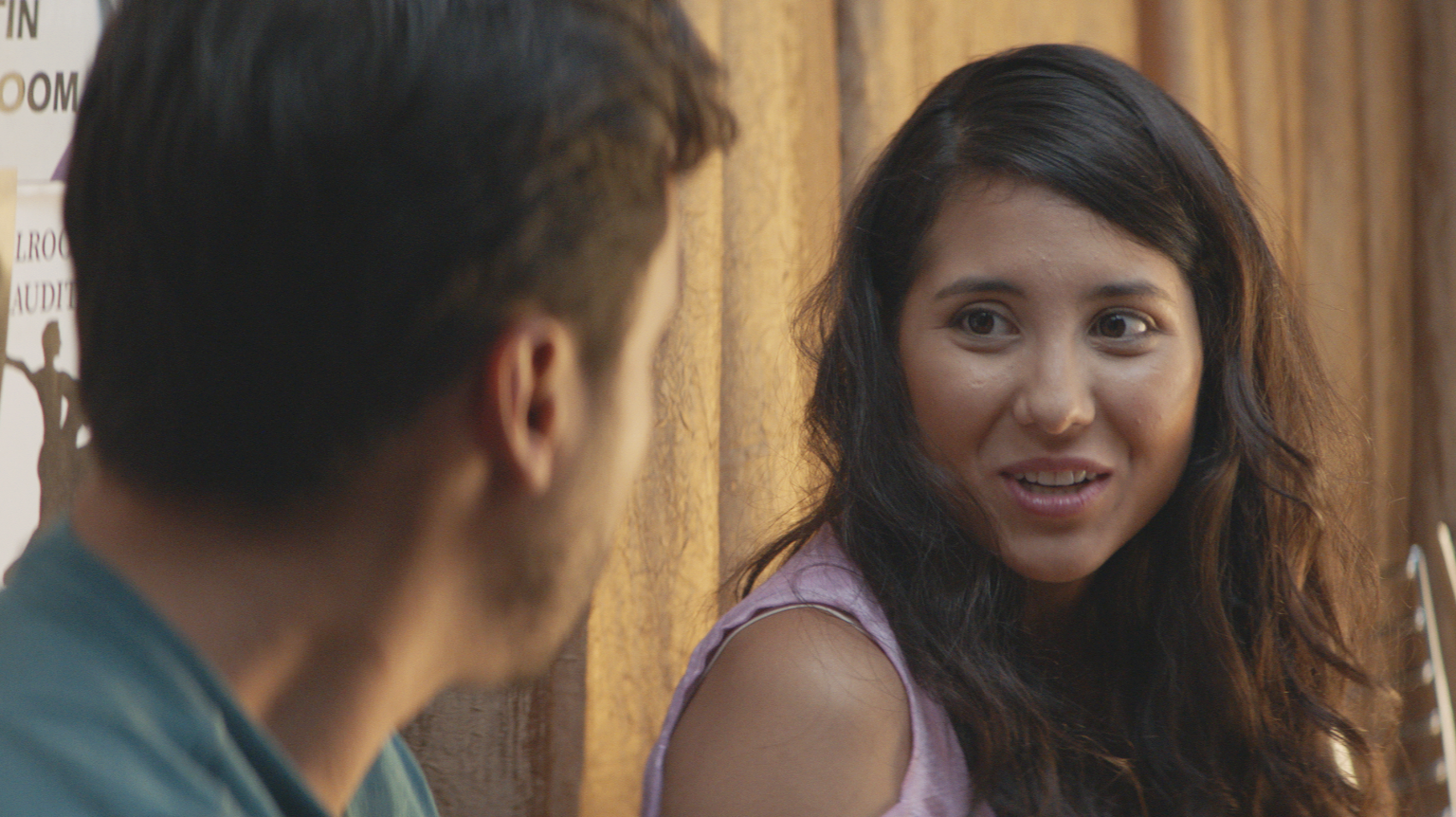
This is definitely a time where we need to find hope and find all the inner strength we can muster. That is the story of a young Latina who comes out of the shadows and into the spotlight. She is by no means considered “good” or a “master” but finds joy in what she does. It’s not like all of us Latinas were born dancers. I have definitely had my share of folks tell me I should be able to shake my hips. The filming of the short film version itself was a wonderful experience separate from the writing. I learned so much about myself as a creator and a person. There were ups and downs in all phases of the production, but I knew I could trust my team and they definitely delivered, even in trying times. Especially my producer and husband, Thomas Barreiros. He was my life saver and still is as we’re going through Post. He and the cast and crew did such impressive work! I`m so excited for others to watch this film!
What are your future goals?
MM: Definitely continue to make movies. I want to be able to get to a point where this takes up 100% of my life. I know that can be a hard thing to achieve but I feel a lot of things in life are hard. Just look at our current events, life is hard. But I feel as long as you are trying your best to do what you love and make sure that your life is full of things that make you feel motivated you are on the right track. That can be hard but even in our free time, we can make sure to set aside time for the things that make meaning in our lives. The internet is a beautiful thing, there is so much to learn just by watching YouTube videos. I’ve gotten stubborn stains out from my shirts that way before.
Tell us about what you think indie filmmaker need in today’s world of filmmaking?
MM: The need to be resourceful! There is so much out there that is within our reach. Use your phones, your family, your pet, anything to try to create as much as you can. We have our social media outlets out there. Which by the way, is the best way to market your film with zero budget. Gotta love social media for that! Minus the drama of social media, it’s a great and beneficial tool.
Briefly write about your career?
MM: I know I’ve talked about the project I’ve written and directed; I have also produced films in the past. I worked on this very amazing project called Where We Begin with the very talented director Hikari. She has been such a wonderful filmmaking talent that I look up to. I was able to be part of the producer’s team as a production manager and have cherished that experience during the filming process and being able to see its journey when it went to multiple tier one festivals including Tribeca. I didn’t think I had the experience back then to be a part of such a talented cast and crew but I can surprise myself sometimes. This is the beauty I see in the film is different people coming together in creating something great. I’ve produced other dance short films that have gone to film festivals before I decided it was time for me to step into the role of director and create other dance films. I love to dance and I feel like it is a very compelling way of visually telling a story and it definitely draws us in. Even in narrative films, I would love to incorporate dance. Even if it’s only a scene, I would still love to see dance in my movies.
Tell us what you think of the interview with Melissa Marquez. What do you think of it? What ideas did you get? Do you have any suggestions? Or did it help you? Let’s have your comments below and/or on Facebook or Instagram! Or join me on Twitter.
Follow Melissa Marquez on Social Media
IMDb
Twitter
Instagram
Vimeo
MORE STORIES FOR YOU
The Key Facts Behind How Jeff Nichols Made The Indie Hit MUD
Jeff Nichols gives himself directorial challenges to master on every project.
In Conversation with Michael Oblowitz Director of Confidential Informant
Confidential Informant stars Mel Gibson, Dominic Purcell, and Kate Bosworth

